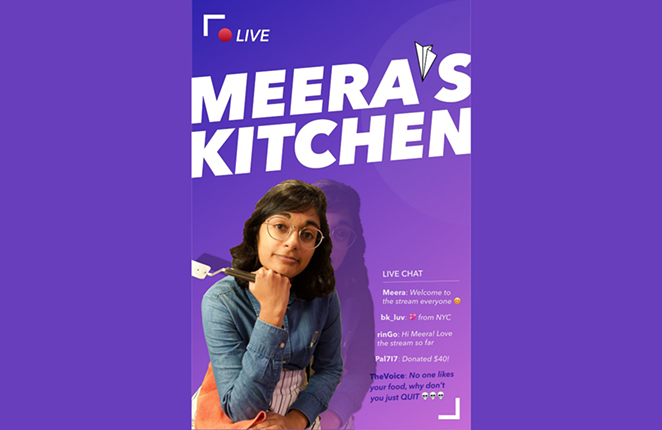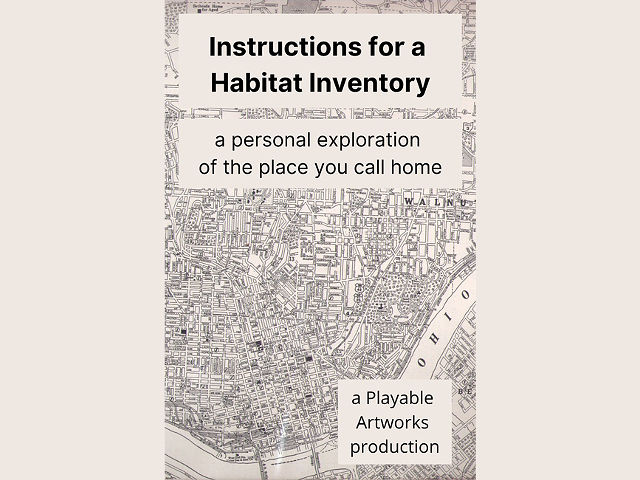Meera’s Kitchen, a livestreamed presentation from Beena Raghavendran from Brooklyn, is kind of subversive, with a message that sneaks up on you.
The set-up takes us to a similarly livestreamed fundraiser from the home of Meera, a young Indian American woman whose dream is to operate a successful South Indian restaurant in the U.S. (as opposed to the Americanized, cookie-cutter menus we find in those ubiquitous Indian buffets that seem to be everywhere).
Meera wants us to fall in love with the foods she grew up with as prepared by her Indian immigrant mother; she’s completely bored with Chicken Tikka Masala and naan and all the rest and wants to cook and offer more refined, elegant Indian food.
But nothing is going right. She’s fumbling in the kitchen during the fundraiser; hardly anyone is donating; she’s filled with self-doubt about a PPP loan she applied for and needs to stay in business; and she begins to question her motives for rejecting the more typical Indian cuisine in favor of her venture. She seems almost ready to give up.
And then the production gets interesting. A voice in Meera’s head takes physical form and confronts Meera, amplifying her doubts and pushing her to give up what she says is a silly dream. Her mother appears in videos, and we see her memories from subtly different perspectives. An outdoor sequence of her alone in the city and in front of the empty restaurant confronts the audience with serious questions, not just about this particular dream of opening her own kind of restaurant, but of whether immigrants can be true to themselves and their heritage when society isn’t always receptive to them.
What started as a low-tech cooking show fundraiser by a nervous young woman suddenly confronts us with hard questions: If someone sells their soul to “give the people what they want,” is that really success? Isn’t it okay to mix your own passion with your heritage and love of your family? And shouldn’t it bother everyone that we’re often uninterested in learning about other people and cultures when it takes us out of a familiar comfort zone? Some of this is very provocative and suggests the underlying racism from a society that won’t accept Indian food as high-end. She says that maybe her food isn’t for someone who wants dinner for two to be $20.0).
Raghavendran is an excellent heroine for this journey. She’s engaging and honest, and we share it all with her. The production isn’t perfect: The pace suffers some from the complex editing, and the primary set (her kitchen) limits her movement. But ultimately the message is completely worth the trip, and we find ourselves rooting for Meera, willing to give her restaurant — and heritage — a try.
The Cincinnati Fringe Festival takes place June 4-19. For more information, show descriptions, a schedule and tickets, visit cincyfringe.com.






